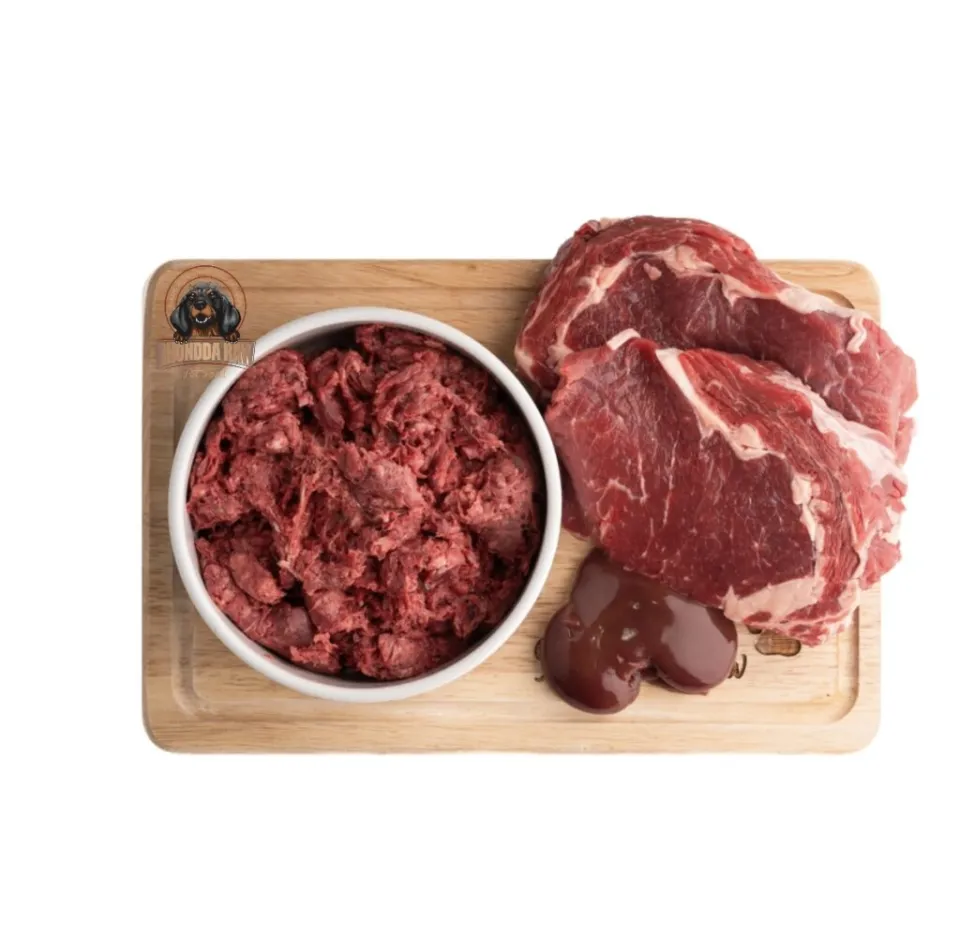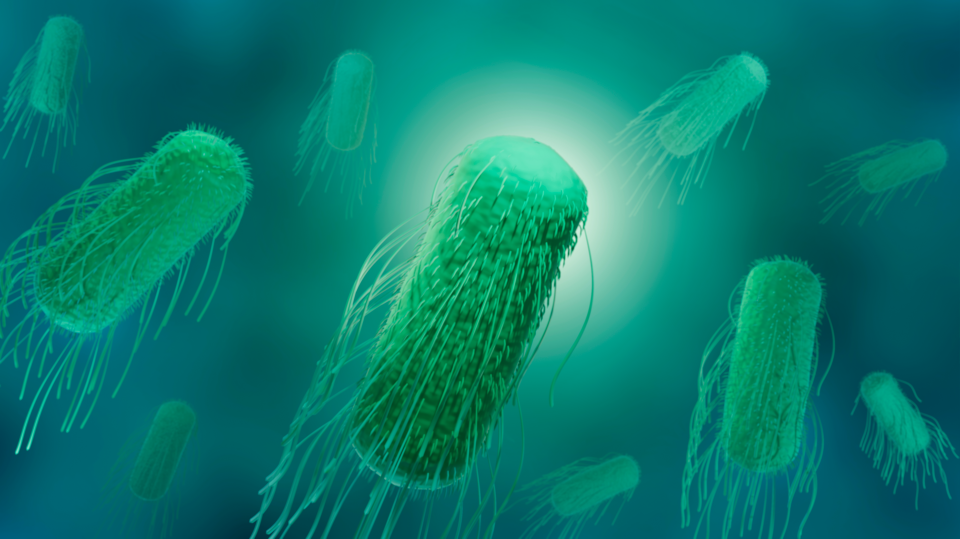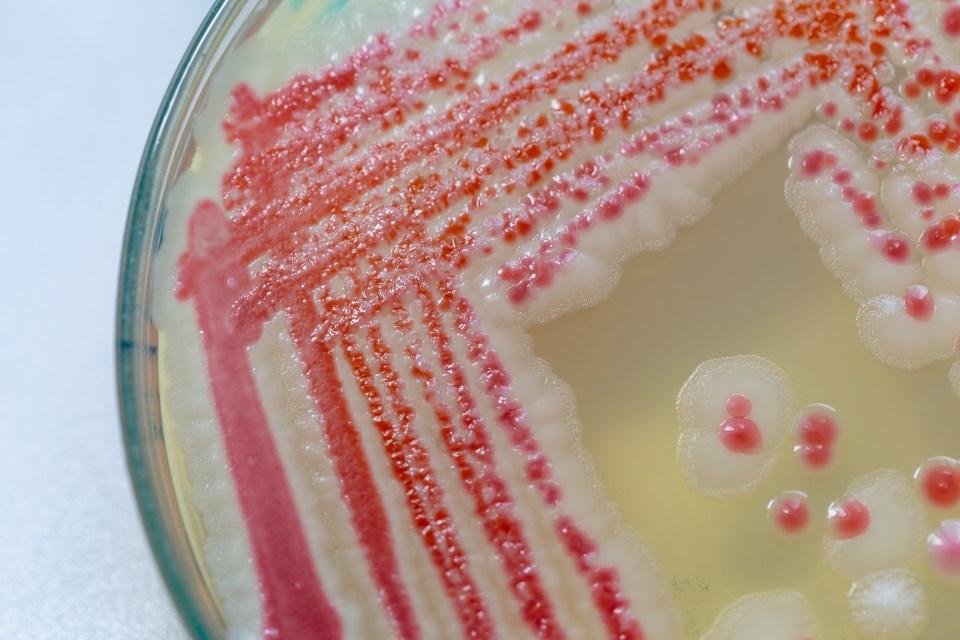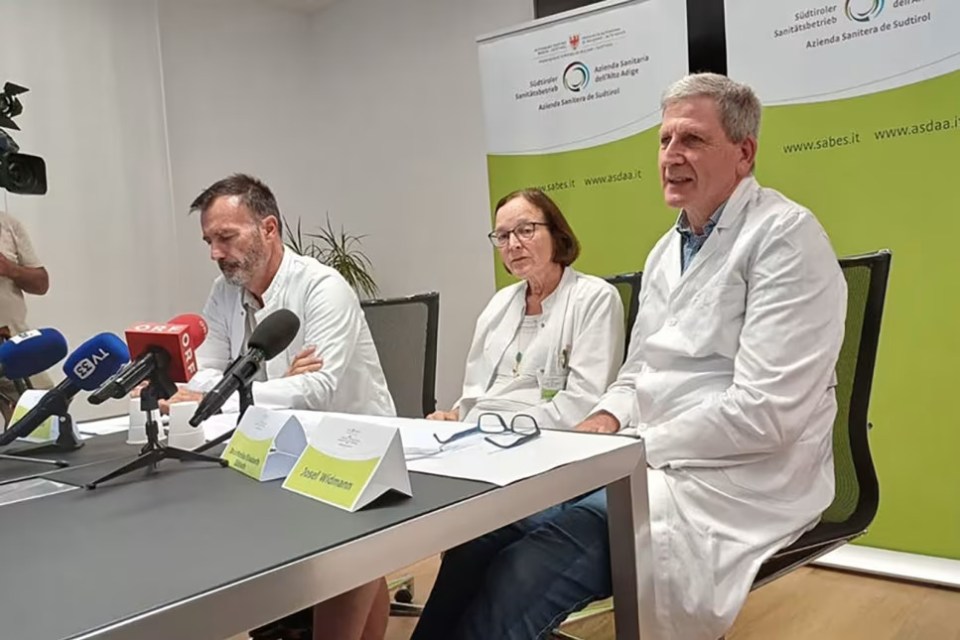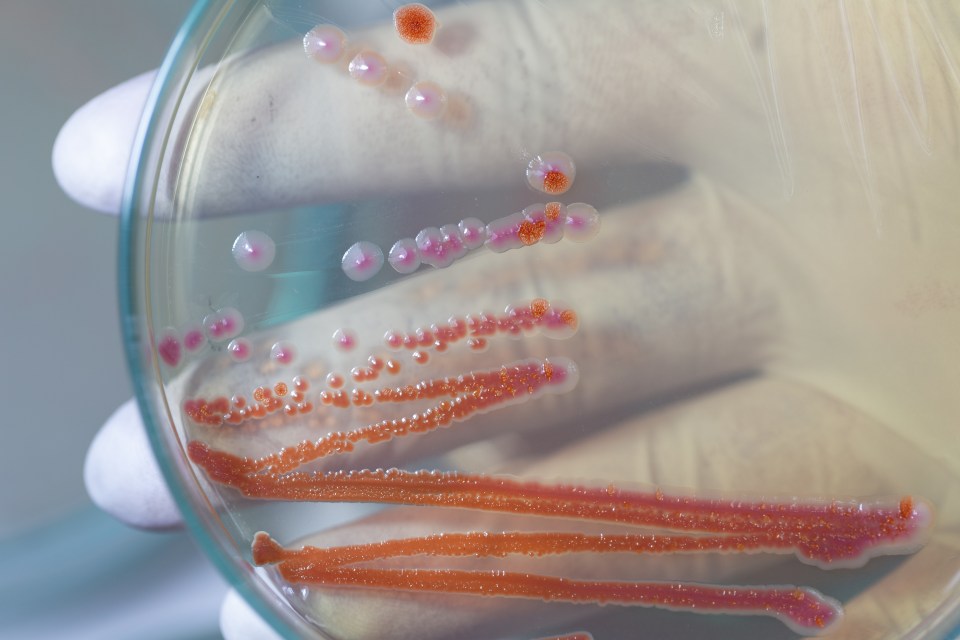Urgent warning for pet owners as contaminated dog food recalled after salmonella found with ‘do not use’ warning issued
A POPULAR dog food has been urgently recalled over fears it contains traces of salmonella.
Pet owners have been advised to avoid feeding the frozen product to their pooches and return it to stores immediately.
Rhondda Raw’s Beef 80-10-10 has been withdrawn from shelves and the firm is recalling the packages.
The raw frozen dog food is unsafe because salmonella has been found in the product, the Food Standards Agency (FSA) said.
The agency urged customers who brought the meat not to feed it to dogs and instead return it to a store for a full refund.
Affected products have batch codes 040825/BM and 050825/BM.
The packs, which include 454g of meat, are also marked with a best before of August 4, 2026.
The FSA said: “Rhondda Raw Ltd are recalling Beef 80/10/10 raw frozen dog food because Salmonella has been found in the product.
“Salmonella is a bacterium that can cause illness in humans and animals. The product could therefore carry a potential risk.
“Rhondda Raw Ltd is recalling the product. Point of sale notices will be displayed in all retail stores that are selling this product.
“This notice explains to customers why the product is being recalled and tell them what to do if they have bought the product.”
Salmonella is a food bug that can cause illness in both humans and animals.
Owners could be put at risk while handling the pet food or bowls, as well as from animal poo.
Annual data from the UK Health Security Agency (UKHSA) reveals there has been a significant rise in salmonella infections in England.
Cases hit a record decade high in 2024, soaring by almost a fifth in a single year to over 10,000 cases.
But separate data last month revealed cases in the first quarter of 2025 were even higher than 2024.
Some 1,588 cases were logged between January and March 2025, up on the 1,541 reported over the same period in 2024.
Children under 10 years old were particularly affected, accounting for 21.5 per cent of cases.
Salmonella can cause a sudden bout of fever, vomiting and explosive diarrhoea, often striking within hours of eating tainted food.
The bacteria attacks the gut lining, damaging cells and stopping the body from soaking up water.
This is what leads to the painful cramps and nonstop diarrhoea as the body flushes out the water it couldn’t absorb.
Most people recover without treatment, but in rare cases it can turn deadly.
Around one in 50 sufferers go on to develop a serious blood infection, according to the World Health Organisation (WHO).
Young children, the elderly and those with weakened immune systems are most at risk of complications.
Salmonella lives in the guts of animals and humans and spreads through contaminated poo.
Food can get tainted if it’s grown in dirty water, handled with grubby hands, or touches surfaces exposed to animal waste.
Last month, an urgent warning was issued over “contaminated tomatoes” which could be the cause of a major salmonella outbreak.
The nasty outbreak has been linked to tomatoes and the UK Heath Security Agency has issued a new warning.
Experts revealed new, rare, strains of salmonella called as Salmonella Strathcona sparked the particularly severe bouts of sickness.
According to the ECDC and the EFSA, nine European countries have reported 29 cases of Salmonella Strathcona since January 2025.
Your product recall rights
Chief consumer reporter James Flanders reveals all you need to know.
Product recalls are an important means of protecting consumers from dangerous goods.
As a general rule, if a recall involves a branded product, the manufacturer would usually have lead responsibility for the recall action.
But it’s often left up to supermarkets to notify customers when products could put them at risk.
If you are concerned about the safety of a product you own, always check the manufacturer’s website to see if a safety notice has been issued.
When it comes to appliances, rather than just food items, the onus is usually on you – the customer – to register the appliance with the manufacturer as if you don’t there is no way of contacting you to tell you about a fault.
If you become aware that an item you own has been recalled or has any safety noticed issued against it, make sure you follow the instructions given to you by the manufacturer.
They should usually provide you with more information and a contact number on its safety notice.
In some cases, the manufacturer might ask you to return the item for a full refund or arrange for the faulty product to be collected.
You should not be charged for any recall work – such as a repair, replacement or collection of the recalled item
